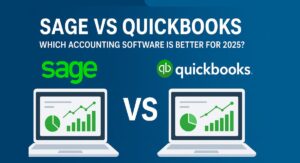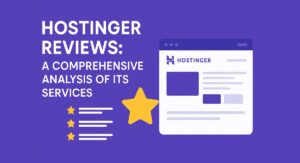The digital landscape is evolving rapidly. Businesses need efficient solutions.
SaaS integration platforms offer immense benefits. They simplify processes and enhance productivity. In today’s fast-paced world, companies rely on multiple software tools to manage various operations. These tools, though helpful, often work in isolation, leading to inefficiencies and data silos.
SaaS integration platforms bridge this gap, connecting disparate systems seamlessly. By integrating different software applications, businesses can streamline workflows, improve data accuracy, and boost overall performance. Whether you are a small startup or a large enterprise, leveraging SaaS integration platforms can transform your operations. This blog will delve into the key benefits of using these platforms, helping you understand why they are crucial for modern businesses.
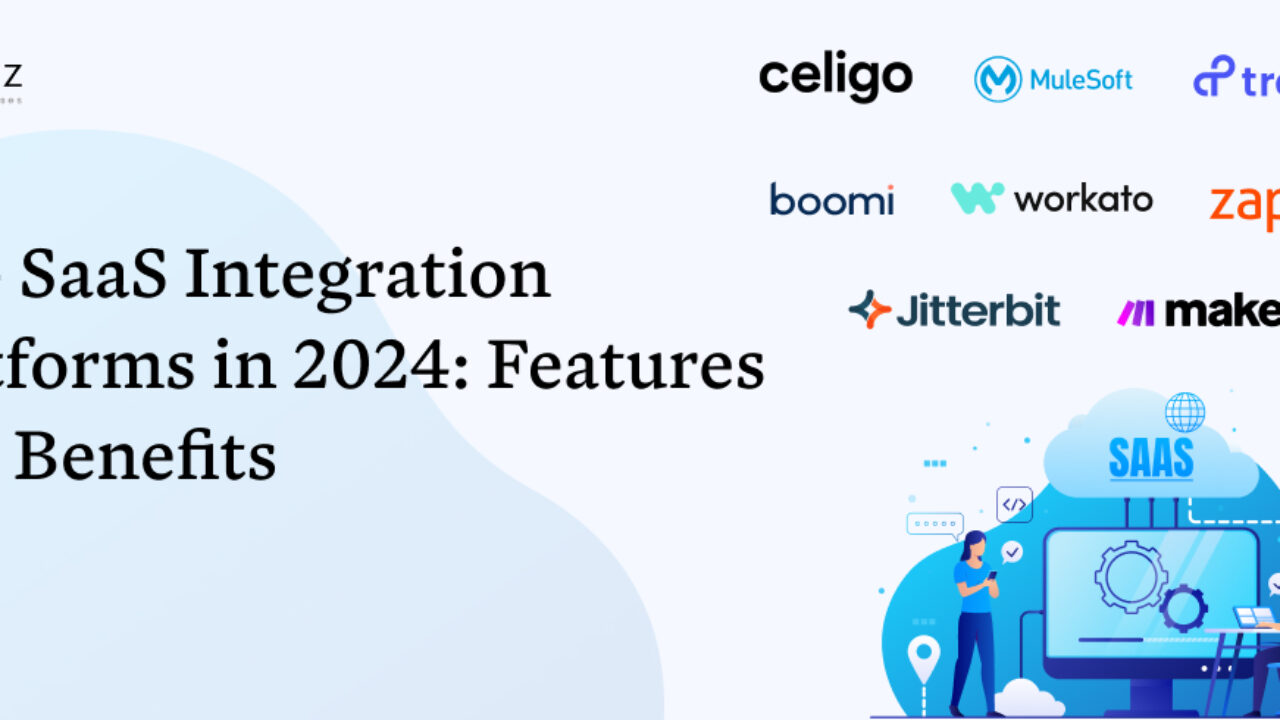
Credit: www.techuz.com
Introduction To Saas Integration
Businesses are adopting Software as a Service (SaaS) solutions at an unprecedented rate. SaaS products are changing the way companies operate. With multiple SaaS applications in use, integration becomes essential. This article introduces SaaS integration and its benefits.
What Is Saas?
SaaS stands for Software as a Service. It is a software distribution model. Applications are hosted by a vendor or service provider. Users access these applications over the Internet. SaaS eliminates the need for hardware and software maintenance.
Many organizations use SaaS for various tasks. Examples include customer relationship management (CRM), human resources, and project management. SaaS solutions offer flexibility and scalability. They help businesses stay competitive.
Importance Of Integration
With numerous SaaS applications, integration is crucial. It ensures that different systems work together seamlessly. Integration allows data to flow between applications. This improves efficiency and reduces errors.
Integrated systems provide a unified view of data. This helps in making informed decisions. It also enhances collaboration across teams. Businesses can automate workflows, saving time and resources.
SaaS integration platforms simplify the integration process. They offer pre-built connectors and tools. These platforms reduce the complexity of managing multiple applications. They enable businesses to focus on their core activities.
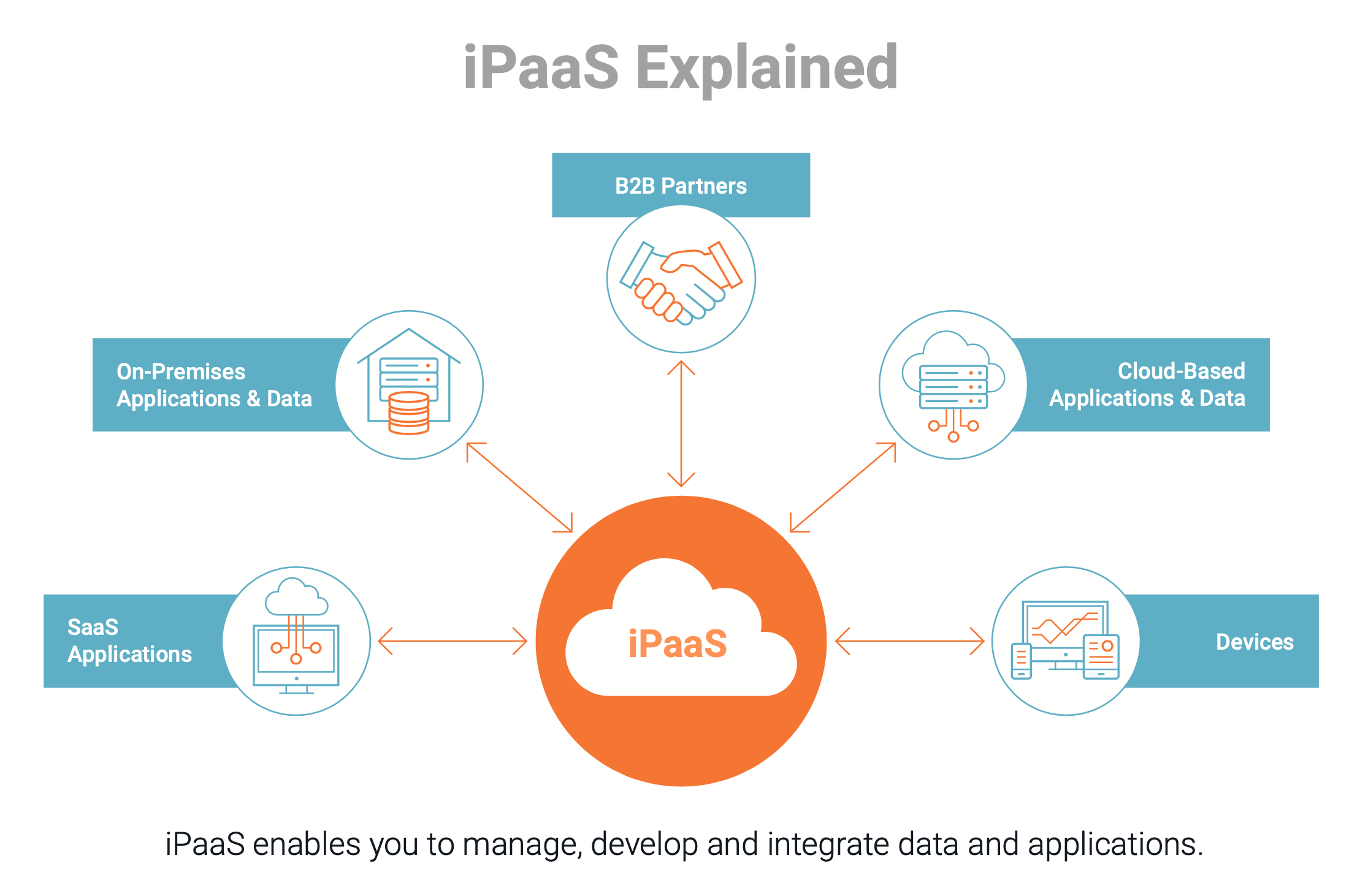
Credit: www.informatica.com
Streamlined Operations
Using SaaS integration platforms can greatly streamline your operations. These platforms help in connecting various software tools. This ensures smooth data flow and efficient processes. Let’s explore how this works.
Automated Workflows
Automated workflows are a major benefit of SaaS integration platforms. With automation, tasks run without manual intervention. This reduces the chance of human error.
For instance, you can set up an automated workflow to handle customer orders. When an order is placed, the platform can automatically update inventory. It can also notify the shipping department. All without any manual input.
Reduced Manual Effort
Another key advantage is the reduced manual effort. By integrating your software tools, you eliminate redundant tasks. This frees up your team’s time for more important work.
Consider a scenario where data from multiple sources need to be combined. With SaaS integration, this data can be automatically merged and updated. No more copy-pasting or manual data entry.
Here are some tasks that can be reduced:
- Data entry
- Report generation
- Order processing
In summary, SaaS integration platforms offer significant benefits. They streamline operations through automated workflows and reduced manual effort. This leads to increased efficiency and productivity.
Enhanced Data Management
Enhanced data management is one of the primary benefits of using SaaS integration platforms. These platforms streamline how you handle your data, making it more organized and accessible. This leads to better decision-making and efficiency. Let’s explore some key aspects of enhanced data management.
Centralized Data
A SaaS integration platform centralizes your data. This means all information is stored in one place. You no longer need to hunt through multiple systems to find what you need. This centralized data approach saves time and reduces errors.
Having all your data in one location also improves collaboration. Team members can access the same information, ensuring everyone is on the same page. This is especially useful for remote teams.
Real-time Updates
SaaS integration platforms provide real-time updates. Your data is always current. This means you can make decisions based on the latest information. Real-time updates are crucial in fast-paced environments.
With real-time updates, you can also track changes. This helps in maintaining data accuracy. You can see who made what changes and when. This feature is essential for auditing and compliance.
Scalability And Flexibility
Scalability and flexibility are key advantages of using SaaS integration platforms. These platforms help businesses grow and adapt to changing needs without much effort. They provide tools to easily add new features and adapt to market changes.
Easily Add New Tools
One major benefit of SaaS integration platforms is the ability to add new tools easily. Businesses can integrate new software without complex installations. This saves time and resources. Companies can quickly respond to new opportunities and challenges.
Adding new tools does not disrupt existing systems. The integration process is smooth and seamless. This ensures continuous business operations. Companies can stay competitive by always having the latest tools at their disposal.
Adapt To Business Changes
SaaS integration platforms offer great flexibility to adapt to business changes. Organizations can scale their operations up or down based on their needs. This flexibility is crucial in a dynamic market environment.
These platforms support various business processes. They adjust to changes in size, structure, or strategy. This adaptability helps businesses stay agile and efficient. Companies can easily align their tools with their goals and objectives.
Overall, SaaS integration platforms provide the scalability and flexibility needed for modern business operations. They enable companies to grow and adapt effortlessly. This makes them an invaluable asset for any organization.
Cost Savings
Cost savings is a significant benefit of using SaaS integration platforms. These platforms help businesses reduce expenses in various ways, making them an attractive option for organizations of all sizes. Let’s explore how they achieve this.
Lower It Costs
SaaS integration platforms help businesses save on IT costs. Traditional IT infrastructure requires significant investment in hardware and software. With SaaS, these expenses are minimized. Companies no longer need to purchase expensive servers or maintain complex systems.
Maintenance and upgrades are included in the service. This means lower staffing requirements and reduced overhead. IT teams can focus on strategic projects rather than routine maintenance. This shift leads to more efficient use of resources and ultimately lower costs.
Pay-as-you-go Model
Another advantage is the pay-as-you-go model. Companies only pay for the services they use. This model provides flexibility and scalability. Businesses can adjust their usage based on needs without worrying about overcommitting to resources.
This approach reduces financial risk. It allows businesses to manage their budgets more effectively. There are no hidden costs or unexpected expenses. The predictable pricing structure helps in better financial planning and allocation of resources.
In summary, SaaS integration platforms offer substantial cost savings through lower IT costs and flexible payment models. These benefits make them a smart choice for many businesses.
Improved Collaboration
Improved collaboration is a key benefit of using SaaS integration platforms. These platforms make it easy for teams to work together, no matter their location. They break down silos and ensure everyone is on the same page.
Cross-departmental Collaboration
SaaS integration platforms enable seamless cross-departmental collaboration. Teams from different departments can share data and insights easily. This fosters a unified approach to problem-solving. It also leads to faster decision-making and improved productivity. Everyone can access the same information in real-time.
Unified Communication
Unified communication is another significant advantage. SaaS integration platforms bring together various communication tools. This includes emails, chats, and video calls. All communication happens in one place, reducing the chances of missed messages. It also ensures that all team members stay informed and engaged.
Better Decision Making
Better decision making is a critical aspect of any business. Saas integration platforms provide valuable tools that support smarter choices. By leveraging these platforms, businesses can gain insights that lead to more informed decisions.
Data-driven Insights
Saas integration platforms gather data from various sources. This data helps in understanding trends and patterns. Businesses can use this information to make better decisions. Data-driven insights reduce guesswork. They provide a clear picture of the business landscape.
Enhanced Reporting
Reporting is crucial for assessing performance. Saas integration platforms offer enhanced reporting features. These features allow for detailed analysis. Businesses can generate comprehensive reports quickly. Enhanced reporting helps in identifying strengths and weaknesses. This leads to more strategic decision making.
Security And Compliance
Security and compliance are critical concerns for businesses using SaaS integration platforms. Ensuring data protection and meeting regulatory standards is essential. These platforms offer robust features to address these needs effectively.
Data Protection
Data protection is a top priority for SaaS integration platforms. They use advanced encryption techniques to secure data. This ensures that sensitive information remains safe from unauthorized access.
These platforms also offer multi-factor authentication. This adds an extra layer of security. Only authorized users can access the data. Regular security updates further enhance protection. This keeps the system resilient against new threats.
Regulatory Compliance
SaaS integration platforms help businesses comply with various regulations. They provide tools to ensure adherence to laws such as GDPR and HIPAA. This is crucial for companies handling sensitive information.
The platforms offer audit trails and reporting features. These help in maintaining compliance records. Businesses can easily track and document their compliance efforts. This reduces the risk of fines and legal issues.
Future Trends In Saas Integration
SaaS integration platforms are evolving rapidly. As technology advances, new trends are emerging. These trends aim to enhance the efficiency and usability of these platforms. Let’s explore some future trends in SaaS integration.
Ai And Machine Learning
Artificial Intelligence (AI) and Machine Learning (ML) are shaping the future of SaaS integration. These technologies can analyze vast amounts of data quickly. They help in identifying patterns and predicting outcomes. This enables better decision-making.
AI and ML also facilitate automated processes. This reduces manual efforts and minimizes errors. As a result, businesses can save time and resources. They can focus on more critical tasks. Below is a table showing key benefits of AI and ML in SaaS integration:
| Benefit | Description |
|---|---|
| Data Analysis | Quickly analyze large datasets to identify trends. |
| Automation | Reduce manual tasks and minimize errors. |
| Predictive Insights | Forecast outcomes based on data patterns. |
Increased Customization
Customization is becoming more important in SaaS integration. Businesses have unique needs. One-size-fits-all solutions are less effective. Increased customization allows businesses to tailor integrations to their specific requirements.
Customized solutions offer several benefits:
- Flexibility: Adapt to changing business needs.
- Scalability: Grow with your business.
- Efficiency: Optimize workflows and processes.
Enhanced customization also improves user experience. Users can configure the platform to suit their preferences. This leads to higher satisfaction and productivity.
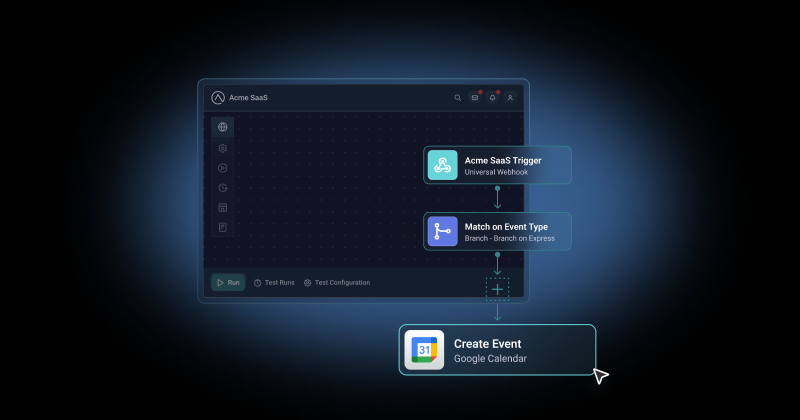
Credit: prismatic.io
Frequently Asked Questions
What Are Saas Integration Platforms?
SaaS integration platforms connect different software applications to work seamlessly together. They streamline data flow and automate processes between various SaaS applications, enhancing productivity and efficiency.
How Do Saas Integration Platforms Benefit Businesses?
SaaS integration platforms reduce manual data entry and minimize errors. They improve collaboration, enhance data accuracy, and save time by automating repetitive tasks, leading to increased operational efficiency.
Can Saas Integration Platforms Improve Data Security?
Yes, SaaS integration platforms can improve data security. They offer secure data transfer protocols, encryption, and compliance with industry standards, ensuring sensitive information remains protected during integration.
Do Saas Integration Platforms Support Scalability?
Absolutely, SaaS integration platforms support scalability. They can handle growing data volumes and integrate with additional applications as your business expands, ensuring seamless operations without disruption.
Conclusion
Choosing SaaS integration platforms brings many advantages. Simplifies processes. Enhances productivity. Saves time. It allows businesses to focus on growth. Integrates various tools smoothly. Improves data accuracy. Enhances team collaboration. Reduces manual tasks. Boosts efficiency. It is a smart choice for modern businesses.
Embrace technology. Achieve better results with less effort.
{ “@context”: “https://schema.org”, “@type”: “FAQPage”, “mainEntity”: [ { “@type”: “Question”, “name”: “What are SaaS integration platforms?”, “acceptedAnswer”: { “@type”: “Answer”, “text”: “SaaS integration platforms connect different software applications to work seamlessly together. They streamline data flow and automate processes between various SaaS applications, enhancing productivity and efficiency.” } } , { “@type”: “Question”, “name”: “How do SaaS integration platforms benefit businesses?”, “acceptedAnswer”: { “@type”: “Answer”, “text”: “SaaS integration platforms reduce manual data entry and minimize errors. They improve collaboration, enhance data accuracy, and save time by automating repetitive tasks, leading to increased operational efficiency.” } } , { “@type”: “Question”, “name”: “Can SaaS integration platforms improve data security?”, “acceptedAnswer”: { “@type”: “Answer”, “text”: “Yes, SaaS integration platforms can improve data security. They offer secure data transfer protocols, encryption, and compliance with industry standards, ensuring sensitive information remains protected during integration.” } } , { “@type”: “Question”, “name”: “Do SaaS integration platforms support scalability?”, “acceptedAnswer”: { “@type”: “Answer”, “text”: “Absolutely, SaaS integration platforms support scalability. They can handle growing data volumes and integrate with additional applications as your business expands, ensuring seamless operations without disruption.” } } ] }

